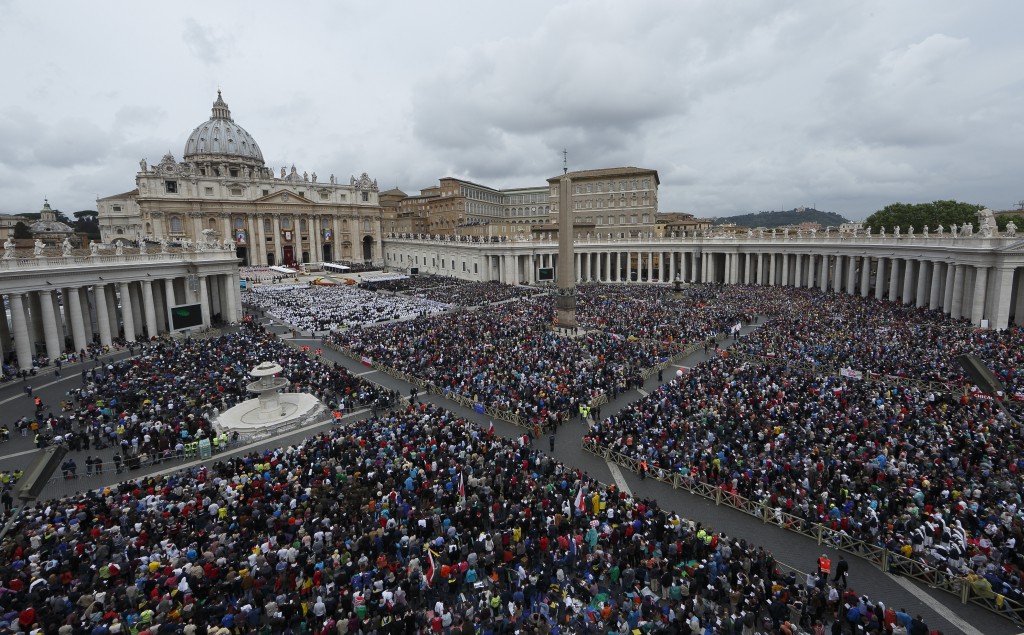
While watching the canonisation of Popes John XXIII and John Paul II on television, I noticed that Pope Francis used the expression “we define” these Popes to be saints. Is this equivalent to the definition of a dogma and therefore an infallible judgment?
It is indeed an infallible judgment. Most of the medieval theologians, among them such notable figures as St Antoninus, Melchior Cano, Francisco Suarez and Cardinal Robert Bellarmine, were of the view that the canonisation of a saint is an infallible judgment.
St Thomas Aquinas, arguably the greatest theologian of all, writes: “Since the honour we pay the saints is in a certain sense a profession of faith, i.e., a belief in the glory of the saints, we must piously believe that in this matter also the judgment of the Church is not liable to error” (Quodlib. IX, a. 16).
The New Catholic Encyclopedia explains why such a judgment must be infallible: “The pope cannot by solemn definition induce errors concerning faith and morals into the teaching of the universal Church. Should the Church hold up for universal veneration a man’s life and habits that in reality led to [his] damnation, it would lead the faithful into error. It is now theologically certain that the solemn canonisation of a saint is an infallible and irrevocable decision of the supreme pontiff. God speaks infallibly through his Church as it demonstrates and exemplifies its universal teaching in a particular person or judges that person’s acts to be in accord with its teaching.”
The very rite of canonisation shows the Church’s belief that it is indeed an infallible judgment.
The Cardinal Prefect of the Congregation of the Causes of the Saints makes three petitions to the Holy Father, beseeching him on behalf of the Church to enrol the Blessed among the saints.
In the third petition he says: “Most Holy Father, Holy Church, trusting in the Lord’s promise to send upon her the Spirit of Truth, who in every age keeps the supreme Magisterium immune from error, most earnestly beseeches Your Holiness to enrol these, her elect, among the Saints.”
The reference to trusting in the assistance of the Spirit of Truth, the Holy Spirit, who “keeps the supreme Magisterium immune from error” shows the belief that infallibility is involved.
The Pope then reads the formula of canonisation: “For the honour of the Blessed Trinity, the exaltation of the Catholic faith and the increase of the Christian life, by the authority of our Lord Jesus Christ, and of the Holy Apostles Peter and Paul, and our own, after due deliberation and frequent prayer for divine assistance, and having sought the counsel of many of our brother Bishops, we declare and define Blessed N. and N. [to] be Saints and we enrol them among the Saints, decreeing that they are to be venerated as such by the whole Church. In the name of the Father, and of the Son, and of the Holy Spirit.”
Here too, the reference to the authority of Jesus Christ and of the Holy Apostles Peter and Paul, to due deliberation and frequent prayer for divine assistance, and the use of the formal words “declare and define” show that the Pope is exercising his teaching authority at the highest level.
What exactly is the object of the infallible judgment? It is not the holiness of life of the person nor the existence of the miracle which confirms this holiness, but rather the fact that the person is indeed in heaven and hence can be the object of veneration by the whole Church.
Before making this judgment the Church undertakes a long and rigorous process of examining the life and virtues of the person, as well as the fact of the miracle attributed to him or her.
Only when this process is complete and the Church is certain that the person is now in heaven will she make a judgment of sanctity and proceed to the canonisation.
It should be understood that the declaration of sanctity does not imply that the person did not commit sins, even serious ones.
Some of the saints, among them St Augustine, led turbulent lives before they were converted and began a new life in God.
As they say, the saints did not all begin well, but they all ended well.